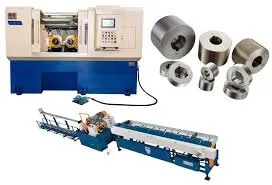
-
 Afrikaans
Afrikaans -
 Albanian
Albanian -
 Amharic
Amharic -
 Arabic
Arabic -
 Armenian
Armenian -
 Azerbaijani
Azerbaijani -
 Basque
Basque -
 Belarusian
Belarusian -
 Bengali
Bengali -
 Bosnian
Bosnian -
 Bulgarian
Bulgarian -
 Catalan
Catalan -
 Cebuano
Cebuano -
 Corsican
Corsican -
 Croatian
Croatian -
 Czech
Czech -
 Danish
Danish -
 Dutch
Dutch -
 English
English -
 Esperanto
Esperanto -
 Estonian
Estonian -
 Finnish
Finnish -
 French
French -
 Frisian
Frisian -
 Galician
Galician -
 Georgian
Georgian -
 German
German -
 Greek
Greek -
 Gujarati
Gujarati -
 Haitian Creole
Haitian Creole -
 hausa
hausa -
 hawaiian
hawaiian -
 Hebrew
Hebrew -
 Hindi
Hindi -
 Miao
Miao -
 Hungarian
Hungarian -
 Icelandic
Icelandic -
 igbo
igbo -
 Indonesian
Indonesian -
 irish
irish -
 Italian
Italian -
 Japanese
Japanese -
 Javanese
Javanese -
 Kannada
Kannada -
 kazakh
kazakh -
 Khmer
Khmer -
 Rwandese
Rwandese -
 Korean
Korean -
 Kurdish
Kurdish -
 Kyrgyz
Kyrgyz -
 Lao
Lao -
 Latin
Latin -
 Latvian
Latvian -
 Lithuanian
Lithuanian -
 Luxembourgish
Luxembourgish -
 Macedonian
Macedonian -
 Malgashi
Malgashi -
 Malay
Malay -
 Malayalam
Malayalam -
 Maltese
Maltese -
 Maori
Maori -
 Marathi
Marathi -
 Mongolian
Mongolian -
 Myanmar
Myanmar -
 Nepali
Nepali -
 Norwegian
Norwegian -
 Norwegian
Norwegian -
 Occitan
Occitan -
 Pashto
Pashto -
 Persian
Persian -
 Polish
Polish -
 Portuguese
Portuguese -
 Punjabi
Punjabi -
 Romanian
Romanian -
 Russian
Russian -
 Samoan
Samoan -
 Scottish Gaelic
Scottish Gaelic -
 Serbian
Serbian -
 Sesotho
Sesotho -
 Shona
Shona -
 Sindhi
Sindhi -
 Sinhala
Sinhala -
 Slovak
Slovak -
 Slovenian
Slovenian -
 Somali
Somali -
 Spanish
Spanish -
 Sundanese
Sundanese -
 Swahili
Swahili -
 Swedish
Swedish -
 Tagalog
Tagalog -
 Tajik
Tajik -
 Tamil
Tamil -
 Tatar
Tatar -
 Telugu
Telugu -
 Thai
Thai -
 Turkish
Turkish -
 Turkmen
Turkmen -
 Ukrainian
Ukrainian -
 Urdu
Urdu -
 Uighur
Uighur -
 Uzbek
Uzbek -
 Vietnamese
Vietnamese -
 Welsh
Welsh -
 Bantu
Bantu -
 Yiddish
Yiddish -
 Yoruba
Yoruba -
 Zulu
Zulu
China Flat Die Thread Rolling Machine - High Precision and Efficiency
China Flat Die Thread Rolling Machine An Overview
In the world of manufacturing, the precision of threaded components is crucial for a wide range of applications, from automotive to electronics. One of the most efficient tools for producing high-quality threads is the flat die thread rolling machine. With the rapid industrial growth in China, the country has become a significant player in the production and innovation of these machines.
Flat die thread rolling machines are designed to produce threads on cylindrical workpieces by deforming the material rather than cutting it. This process not only enhances the mechanical properties of the materials involved but also results in a smoother surface finish and improved dimensional accuracy. The rolling action compresses the material grains, enhancing the strength of the threads produced. As a result, these machines are favored for producing fasteners like screws, bolts, and nuts.
One of the key advantages of flat die thread rolling machines is their efficiency. Compared to traditional cutting methods, rolling can significantly increase production speed and reduce material wastage. The machines can perform multiple thread operations in a single pass, making them ideal for high-volume production settings. In addition, they require less power consumption, which translates into lower operational costs.
china flat die thread rolling machine

In China, the manufacturing sector has adopted these machines widely due to the growing demand for high-quality threaded products. The Chinese market is characterized by a mix of established manufacturers and innovative startups, both of which contribute to the rapid advancement of technology in thread rolling machinery. Advanced automation and CNC capabilities are being integrated into flat die thread rolling machines, enhancing their precision and reducing the need for manual intervention.
Furthermore, Chinese manufacturers are increasingly focusing on export markets, making their machines competitive on a global scale. High-quality materials and cutting-edge engineering processes enable these machines to meet international standards, attracting buyers from around the world.
Despite the advantages, there are challenges associated with flat die thread rolling machines. Customers often seek customization to meet specific application requirements, which necessitates that manufacturers invest in flexible solutions. Additionally, maintaining consistent quality is crucial; therefore, rigorous testing and quality control measures must be in place.
In conclusion, the China flat die thread rolling machine represents a blend of tradition and modern technology. As the industry continues to evolve, these machines will play a vital role in ensuring that manufacturers can produce high-quality threaded components efficiently and economically. With ongoing innovations and a commitment to quality, China is set to remain a leader in the global thread rolling machine market, meeting the needs of various industries while embracing sustainability and technological advancement.
